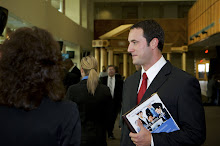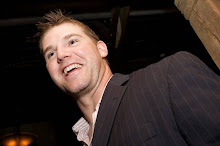Work at Home?
Your Employer
May Be Watching
The clipboard toting, clock-watching, quota-setting productivity expert, peering nosily over your shoulder at work, has been out of fashion in business schools for decades.
Now he's back, in electronic form -- in the home office.
In a budding trend some employment experts say is invasive, companies are stepping up electronic monitoring and oversight of tens of thousands of home-based independent contractors. They're taking photos of workers' computer screens at random, counting keystrokes and mouse clicks and snapping photos of them at their computers. They're plying sophisticated technology to instantaneously detect anger, raised voices or children crying in the background on workers' home-office calls. Others are using Darwinian routing systems that keep calls coming so fast workers have no time to go to the bathroom.
| In a budding trend some employment experts say is invasive, companies are stepping up electronic monitoring and oversight of tens of thousands of home-based workers. WSJ's Sue Shellenbarger reports. |
Peter Weddle, an author, consultant and researcher on employment Web sites, calls the trend "21st Century Big Brotherism" that risks being "horribly intrusive." Skilled workers "don't need someone looking over their shoulders," he says. But while the monitoring can put a damper on home life, many people are so eager to avoid commuting hassles that they see the practice as an acceptable tradeoff.
The technology so far affects mainly freelance information-technology workers, writers, graphic-design artists and call-center agents. But as telecommuting grows amid soaring fuel costs, more people will find themselves on an electronic leash. The monitoring itself may speed the growth, because it tears down one of the biggest obstacles to working at home -- employers' fear that remote workers will slack off.
Electronic monitoring is built right into freelance transactions at oDesk.com, which links 90,000 computer programmers, network administrators, graphic designers, writers and others with about 10,000 clients world-wide. The system takes random snapshots of workers' computer screens six times an hour, records keystrokes and mouse clicks and takes optional Web cam photos of freelancers at work. Clients can log into the system anytime and see whether contractors are working, what they're doing and how long it's taking them; clients' weekly bills are based largely on the data. A small computer-screen icon pops up at the bottom of workers' screens each time a screen shot is taken.
ODesk Chief Executive Gary Swart says a client paying a freelancer likes knowing, "You can't play Blackjack. You can't watch YouTube. Why? Because I'm watching you work." When one oDesk client questioned an inflated bill from a freelancer, a check of the screen shots revealed he'd been watching a cricket game online. The freelancer reduced his bill.
One big oDesk competitor, Elance.com, says installing "spyware," as one Elance executive calls it, is going too far. Elance recently unveiled a monitoring system of its own that allows freelancers to document their work electronically, but leaves control entirely in freelancers' hands. "We don't believe in having a camera on your computer, taking pictures and tracing every move," says Elance Chief Executive Fabio Rosati. Several of oDesk's own programmers quit several years ago when the company insisted they submit to monitoring.
At first, it seems like "Oh, this is Big Brother" watching, acknowledges Russell Tweed, a St. Helens, Ore., computer-network administrator who works on oDesk. But he says none of his oDesk clients has tried to micromanage his work. Freelancers like oDesk's payment system; it takes clients' credit cards up front and, barring a veto from the buyer, pays workers promptly every week, eliminating slow-pay problems.
One oDesk buyer, Juliana Carroll, a Manhattan financial-services consultant, says she has saved as much as 25% using oDesk freelancers because they turn out more work faster than contractors she has found on her own. Menlo Park, Calif.-based oDesk, which charges clients 10% on top of freelancers' fees, says its June 2008 revenue was 2.8 times year-earlier levels.
![[chart]](http://s.wsj.net/public/resources/images/PJ-AM911_workfa_20080729214827.gif)
Corporate managers with work-at-home employees also worry about potential slackers, and some have tightened ties with home-office workers by monitoring their use of instant messaging or corporate VPN links. However, employers typically resist Web cam or keystroke monitoring of their own staffers as too invasive, relying instead on screening telecommuters carefully and setting measurable work objectives.
In another sector, call-center companies are tightening the electronic leash on home-based agents, who handle calls for retailing, travel and other clients. Call-routing technology at Arise.com, Miramar, Fla., helps keep its 8,000 home agents so tightly tethered to their phones that they have to schedule unpaid time off to go to the bathroom. Calls flow fastest to the most productive workers. Arise home agents, who are all independent business owners, have incentives to take a lot of calls; their base pay starts at about $8 an hour, but commissions are added for selling cruises, computers and the like. Top performers also get more flexibility, in the form of first dibs on work shifts.
To keep calls flowing, Arise agents are discouraged from leaving their desks. Instead, Arise recommends they anticipate when they'll need a bathroom break and schedule a half-hour off the clock, without pay, at that time -- usually every two to three hours.
Another call-center outsourcer, Working Solutions, which has 4,000 active agents, is applying sophisticated speech-analytics technology to tune an omnipresent electronic ear into numerous home-office conversations at once.
It's not unusual for call-center companies to record and spot-check agents' calls by listening in now and then. Working Solutions' new system goes beyond that to instantly detect and flag such trouble signals as cancellation threats or angry voices, enabling supervisors to jump in on the conversations right away, says Tim Houlne, chief executive of the Plano, Texas, company.
Home agents' slipups, such as dogs barking or children crying in the background, are frowned upon. Like most call-center operators, Working Solutions says it has "zero tolerance" for background noise.
The trend suggests the home office, long regarded as a calmer place to work, may evolve into just another office, fraught with the same constraints as a corporate cubicle. Maggie Torres, a longtime home agent for Arise in Southwest Ranches, Fla., says her children, 17 and 18, have learned over the years to "stay out and be quiet" when she works. Even her little dog stops running and jumping; "when he sees me go to that seat, he goes to his bed and lies down and that's it."
But the rewards, she says, warrant the sacrifices. "If you do good on all your stats you get to pick your hours early. I usually do -- and thank God, I get to pick the hours I want."
Write to Sue Shellenbarger at sue.shellenbarger@wsj.com






